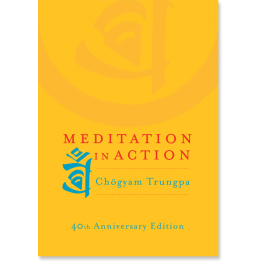Why meditate?
 I spend what seems to me a lot of time meditating and sometimes I wonder why. There is getting to be a lot of evidence that any kind of mindfulness practice is good for one’s health, and I can certainly testify to that from my experience. When I meditate (and I’m talking about shamatha here – simple concentration on the breath, nothing more) my symptoms subside for a moment, and even that brief moment is a huge relief. When I do more contemplative meditation – vipasyana – I can spend a lot of time listening to my body and talking to my inner healer. This practice offers a considerable amount of insight, and helps to keep me on track with my various healing activities.
I spend what seems to me a lot of time meditating and sometimes I wonder why. There is getting to be a lot of evidence that any kind of mindfulness practice is good for one’s health, and I can certainly testify to that from my experience. When I meditate (and I’m talking about shamatha here – simple concentration on the breath, nothing more) my symptoms subside for a moment, and even that brief moment is a huge relief. When I do more contemplative meditation – vipasyana – I can spend a lot of time listening to my body and talking to my inner healer. This practice offers a considerable amount of insight, and helps to keep me on track with my various healing activities.
I also enjoy watching my thoughts triggering one another in a long chain of emotions, memories, internal dialogs and projections of the future that have little or nothing to do with what is actually happening in my life. Seeing my thoughts this way, as a form of semi-random neural activity, allows me a little distance from my feelings. It’s the difference between “I’m feeling down” and “life sucks.” Seeing emotions as feeling that come and go, instead of as “real” states of being is particularly helpful for someone with a chronic illness, which comes as a package with heavy feelings of loss and fear.
So far this all seems to come under the heading of meditating because it’s good for me. Meditation is good for me and that seems like sufficient reason to do it. But only meditating for this reason seems to miss the point in some fundamental way that I find difficult to articulate. In fact, if meditation did not offer these tangible benefits to my health I would still do it.
If nothing else, meditation seems to imply some kind of identification with the here and now, without any specific goal. Two quotes from Chogyam Trungpa sum this up both are from Meditation in Action:
Nowness is the essence of meditation. Whatever one does, whatever one tries to practice, is trying to see what is here and now.
One must practice meditation directly without expectation or judgment and without thinking in terms of the future at all. Just leap into it. Jump into it without looking back. Just start without a second thought.
Using meditation in order to improve my health seems quite different from this; it’s clearly aimed at the future and at a specific goal. Which doesn’t mean that it isn’t worth doing for health benefits alone, only that there’s more going on.
Regarding this, I would say that there aren’t many places in my life where I take the time to cultivate a compassionate and non-judgmental attitude towards myself, no matter how I’m feeling. The resulting feeling of inner peace, however fleeting, makes it worth doing.
In meditation, all thoughts are regarded as equally sacred. Does this mean they are all equally valuable and also not valuable, and the meditator is also sacred?
— Dale Bennett







